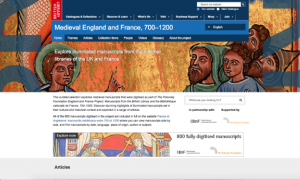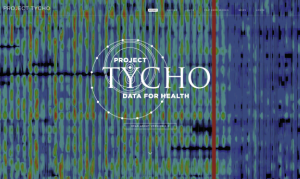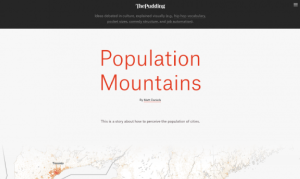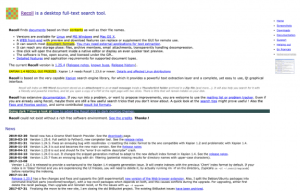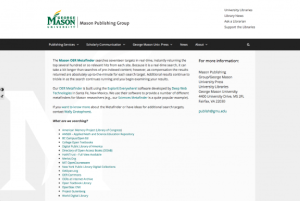Theme: Open Education Week
Back to Top
|
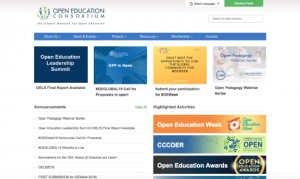 |
|
The Open Education Consortium
|
Philosophy |
|
The nonprofit Open Education Consortium (OEC) describes itself as a "global, member-based network of open education institutions and organizations" with a mission to "promote, support and advance openness in education around the world." Among its activities, every year the OEC hosts and coordinates Open Education Week (which, this year takes place from March 4-8, 2019), the Open Education Global Conference, and the Open Education Awards for Excellence, which highlight exceptional people as well as outstanding resources, tools, and practices in open education. Visitors to the OEC website can find links to open education resources, such as curriculum materials and webinars for open education practitioners, and information on the consortium's projects, including a collection of interviews with faculty and administrators on "the impact that open education projects and practice have had on their institutions." The OEC is based in Massachusetts and currently boasts well over 200 member organizations in more than 40 countries worldwide, including MIT, Open University Netherlands, and the University of Cape Town. [JDC] |
|





|
|
 |
|
LibreTexts
|
Science |
|
Learners and educators in search of free textbooks may find a solution in LibreTexts, a nonprofit project that describes itself as "a multi-institutional collaborative venture to develop the next generation of open-access texts to improve postsecondary education at all levels of higher learning." Visitors to LibreTexts will find "twelve independently operating and interconnected libraries that focus on augmenting post-secondary education in specific fields in STEM fields, social sciences, and humanities." Within these libraries, readers can find bookshelves of digital textbooks, campus courses of customized LibreTexts, homework exercises, and ancillary materials such as visualizations and simulations. As of this write-up, LibreTexts contains nearly 400 open-access textbooks and other course materials that are developed collaboratively between faculty, students, and outside experts and scholars. LibreTexts is directed by its founder Delmar Larsen, Associate Professor of Chemistry at the University of California, Davis, who was inspired by his own frustration with errors in the conventional textbooks that his students had been paying for. In October 2018, LibreTexts was awarded the US Department of Education's inaugural Open Textbook Pilot Grant, worth a total of $4.9 million, which the project is using to expand their educational content and incorporate additional advanced features such as interactive 3D animations and integration with online learning management systems. [JDC] |
|





|
|
 |
|
BCcampus Open Education: Accessibility Toolkit - 2nd Edition
|
Educational Technology |
|
Educators who are thinking about creating their own open education resources (OER) may be interested in this Accessibility Toolkit published by BCcampus, an organization whose mandate is to "provide teaching, learning, educational technology, and open education support to the post-secondary institutions of British Columbia." This toolkit provides a guide to creating an open and accessible textbook or other OER that can be used by readers "who cannot use conventional print materials because of disabilities." Written for non-technical users, the toolkit is organized into two main sections: Key concepts and Best practices. Examples of the topics covered include the concept of universal design for learning, organizing content for accessibility, best practices for including images and multimedia, and how to write an accessibility statement. The toolkit also includes several appendices that include a checklist for accessibility and an activity exploring scenarios to help decide whether redesign or accommodation is most appropriate. Readers can view the entire toolkit online, and it can also be downloaded in a wide range of file formats, such as PDF, EPub3, MOBI, and OpenDocument. Created using Pressbooks, this second edition of the Accessibility Toolkit was published in August 2018. [JDC] |
|





|
|
 |
|
MERLOT
|
Educational Technology |
|
MERLOT is an open education resource (OER) project comprised of a curated repository of high-quality teaching and learning materials for a wide variety of disciplines, such as STEM, social sciences, humanities, and business. These materials include open-access textbooks, learning exercises, tutorials, online courses, and more. One of MERLOT's many useful features is its bookmark collections of multiple resources and course ePortfolios, all of which were added to MERLOT by its roughly 160,000 members (as of this write-up) and can be freely accessed by anyone. Upon registering for a free membership, users also gain the ability to upload resources, create their own bookmark collections and course ePortfolios, and rate and comment on collection materials. In addition to user ratings, more than 5,000 of the over 83,000 materials currently available in MERLOT have been peer-reviewed. This large repository encompasses OER for audiences ranging from elementary students all the way up to professionals. Visitors may also want to check out one of this project's 24 academic discipline communities, where they will find discipline-specific materials collected together into one portal. MERLOT, which stands for Multimedia Education Resource for Learning and Online Teaching, was started in 1997 as a project of the California State University System. [JDC] |
|





|
|
 |
|
FOSTER Open Science Toolkit
|
Science |
|
FOSTER Plus, a two-year EU-funded project focused on supporting and contributing to a cultural shift towards open science in the European research community, has developed a collection of ten free online courses to "answer some of the most common questions you might have about putting open science into practice." Each course centers on a different aspect of open science, which FOSTER notes "applies to all research disciplines" and defines it as "the movement to make scientific research, data, and dissemination accessible to all levels of an inquiring society." Topics include managing and sharing research data, open-source software and workflows, and data protection and ethics. The courses can be taken in any order, but all learners should begin with What Is Open Science? as an introduction. Each course takes about one to two hours to complete, and learners can also earn badges for successful completion with free registration, though an account is not necessary to access the courses. This toolkit is primarily intended for early-career researchers, academic staff (such as librarians and IT technicians), and policymakers. The FOSTER Plus project will be continuing until the end of 2019 and is conducted by eleven project partners in six European countries. [JDC] |
|





|
|

